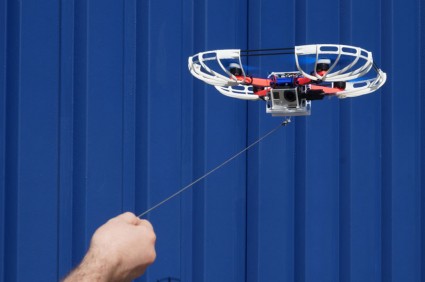
Robohub.org
Transport Canada’s position on indoor and tethered drone operations

Fotokite tethered drone.
In November, Transport Canada issued Staff Instruction 623-001, which provides guidance on the review and processing of Special Flight Operations Certificate (SFOC) applications. Among the issues addressed are whether an SFOC is required for indoor and tethered drone operations. Below is a summary of Transport Canada’s position…
Indoor Operations
According to the Staff Instruction, there are certain situations in which you don’t need an SFOC to conduct an operation inside a building or a structure, however this is not always the case. Whether you need an SFOC or not for an indoor operation turns on who is actually present while the operation is being conducted.
If only the operation crew is present, an SFOC is not required. Similarly, if only the crew and other people who are directly participating in the operation are present, an SFOC is not needed. For example, for an indoor movie set, an SFOC would not be required if only the crew and actors are present. However, if there are individuals present within the building or structure who are not directly involved in the operation, then an SFOC would be required. An example of this would be a sporting event where members of the public would be present.
Tethered Drones
The Staff Instruction characterizes tethered drones as “obstacles to air navigation [that] are to be marked and lit in accordance with the obstruction marking and lighting standards” found in the Canadian Aviation Regulations. The Staff Instruction further provides that tethered drones that are “extremely manoeuvrable and which operate over wide vertical/horizontal areas may require an SFOC.”
It is unclear what Transport Canada considers to be an ‘extremely manoeuvrable’ tethered drone or what constitutes a ‘wide vertical/horizontal area’. However, the Staff Instruction states that, “operating an aircraft on a tether simply to avoid SFOC requirements is not a viable solution.”
tags: c-Politics-Law-Society, Canada, drone regulation





